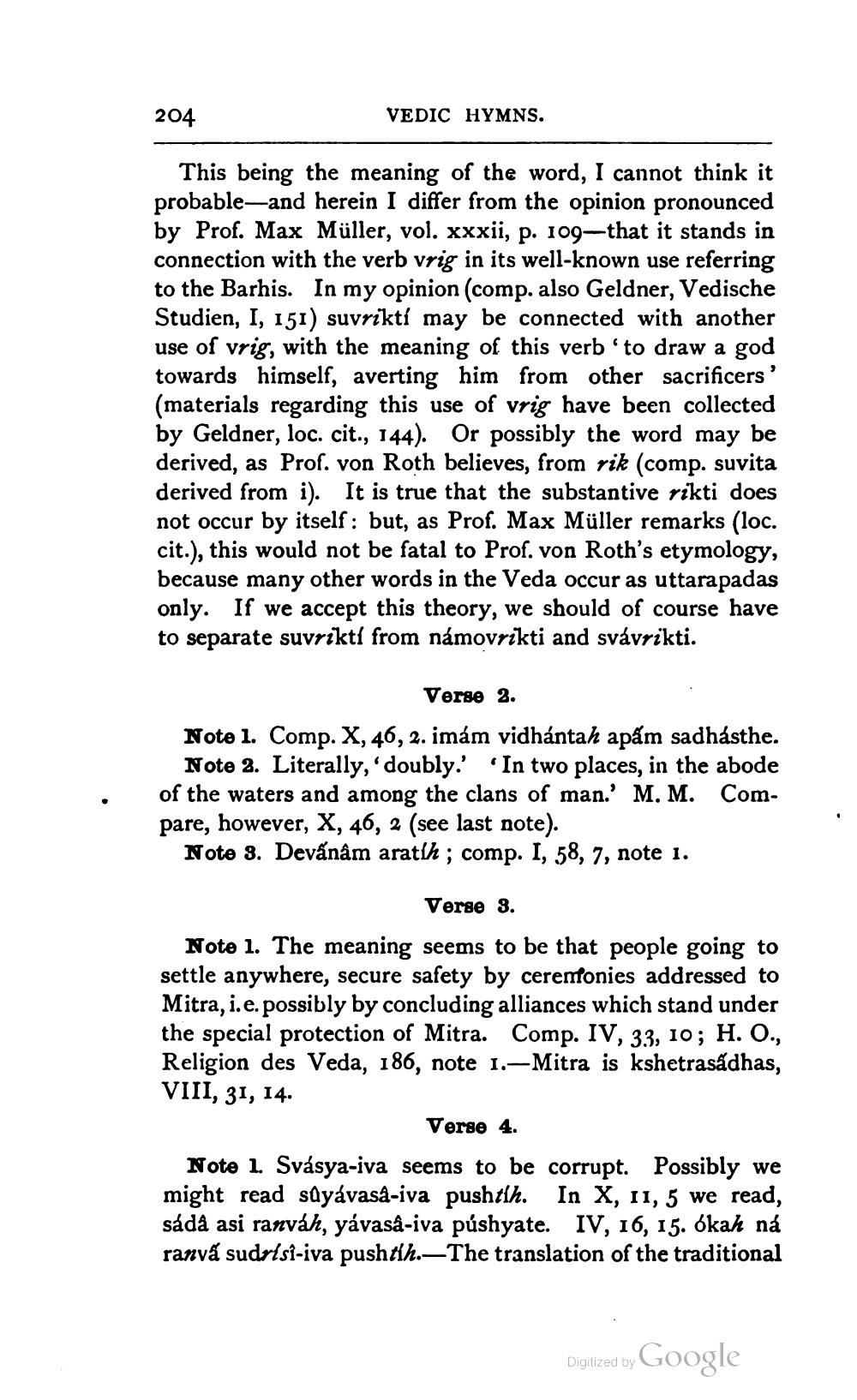________________
204
VEDIC HYMNS.
This being the meaning of the word, I cannot think it probable—and herein I differ from the opinion pronounced by Prof. Max Müller, vol. xxxii, p. 109—that it stands in connection with the verb vrig in its well-known use referring to the Barhis. In my opinion (comp. also Geldner, Vedische Studien, I, 151) suvrikti may be connected with another use of vrig, with the meaning of this verb 'to draw a god towards himself, averting him from other sacrificers' (materials regarding this use of vrig have been collected by Geldner, loc. cit., 144). Or possibly the word may be derived, as Prof. von Roth believes, from rik (comp. suvita derived from i). It is true that the substantive rikti does not occur by itself: but, as Prof. Max Müller remarks (loc. cit.), this would not be fatal to Prof. von Roth's etymology, because many other words in the Veda occur as uttara padas only. If we accept this theory, we should of course have to separate suvrikti from námovrikti and svávrikti.
Verse 2. Note 1. Comp. X, 46, 2. imám vidhántah apám sadhasthe.
Note 2. Literally, doubly. In two places, in the abode of the waters and among the clans of man.' M.M. Compare, however, X, 46, 2 (see last note).
Note 3. Devấnâm aratlh ; comp. I, 58, 7, note 1.
Verse 3
Note 1. The meaning seems to be that people going to settle anywhere, secure safety by ceremonies addressed to Mitra, i.e. possibly by concluding alliances which stand under the special protection of Mitra. Comp. IV, 33, 10; H. O., Religion des Veda, 186, note 1.-Mitra is kshetrasádhas, VIII, 31, 14.
Verse 4. Note 1. Svásya-iva seems to be corrupt. Possibly we might read sdyávasá-iva pushtih. In X, 11, 5 we read, sádå asi ranváh, yávasá-iva púshyate. IV, 16, 15. Okah ná ranvá sudrisi-iva pushtih.—The translation of the traditional
Digitized by Google




